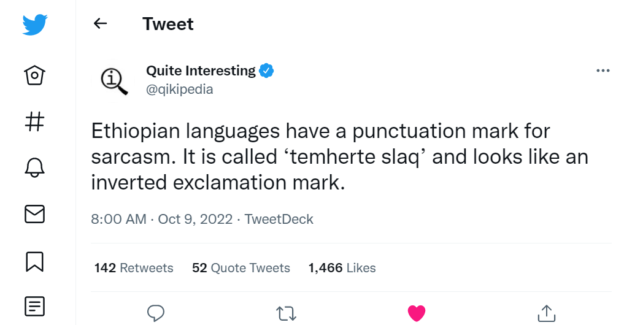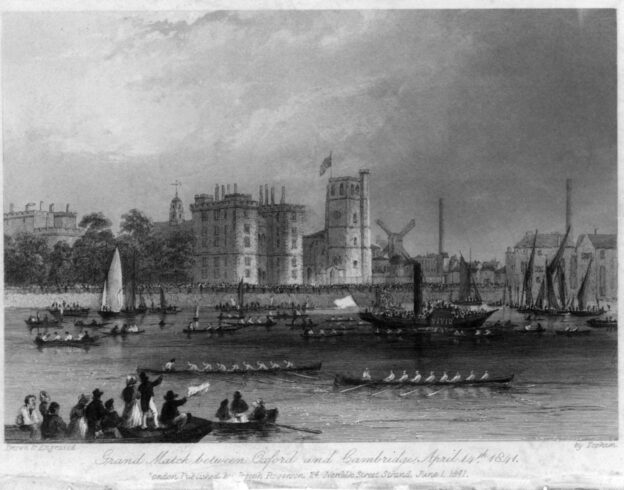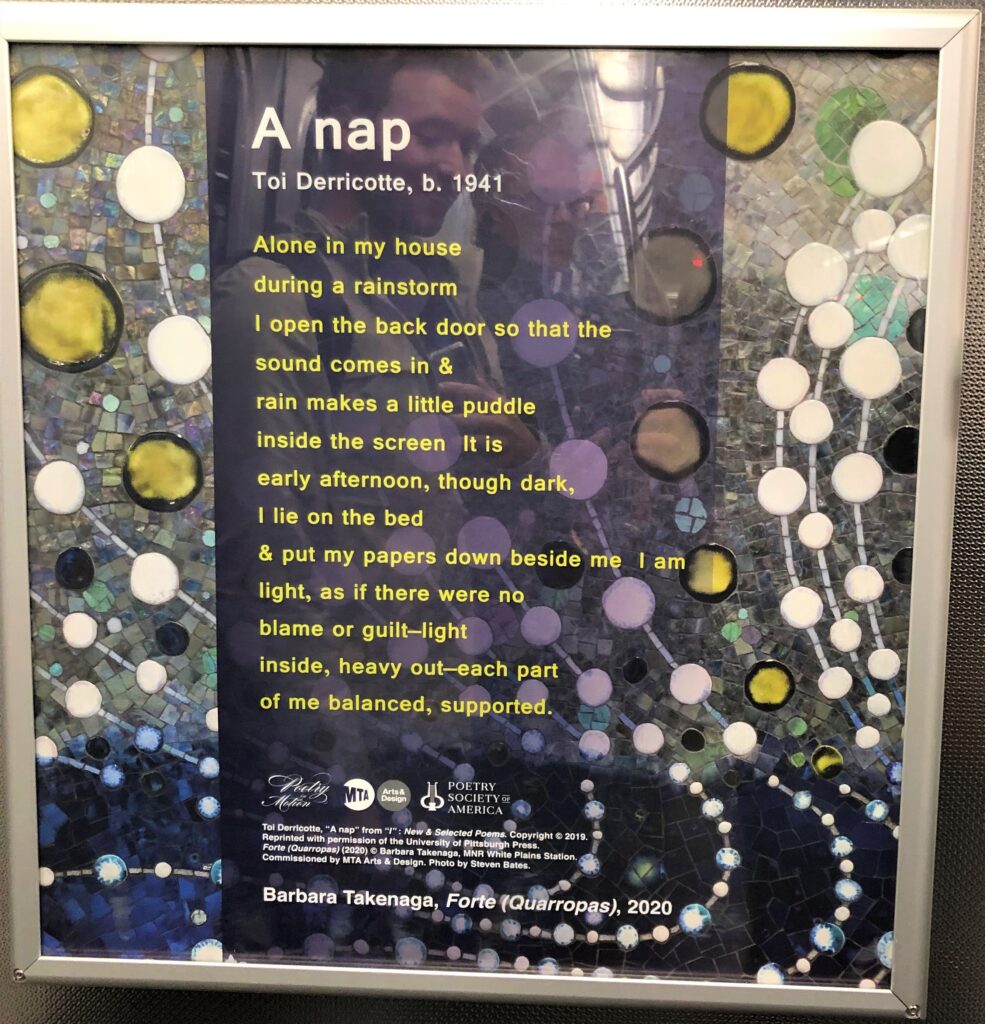

Poetry in Motion: Toi Derricotte’s “A nap”

Oxford & Cambridge: is punctuation the new battleground for an old rivalry?
The annual Oxford and Cambridge Boat Race is coming up on Sunday. Will Oxford take the trophy back from Cambridge, who were victorious in their latest row-off last year? Tension is mounting in the historic rivalry between the famous British universities – and today it goes beyond the coxes and crews and the battle of the Blues. As reported this morning in the Cambridge Herald, Cambridge University has announced its introduction of the “Cambridge comma.” Rivaling the contentious Oxford comma, which – after the apostrophe – is probably the most divisive punctuation mark in the English language (see Glossophilia’s earlier post on the Oxford or serial comma here), the Cambridge comma introduces a punctuated pause AFTER the word “and“ in lists — i.e. before the final list item, with Oxford already having staked its claim to the prime position before the “and”.
An example of the new Cambridge comma illustrates the unexpectedly belated verbal interruption that it offers: “He packed up his books, cigars, teddy bears and, slippers.” Oxford’s remains more predictably timely: “He packed up his gowns, pipes, long-johns, and ties.”
Oxford and Cambridge have enjoyed an infamous but healthy rivalry for centuries, dating back to when they were the only two universities in England and Wales. Competition between the “Oxbridge” institutions is most famously characterized by the annual boat race, which takes place on a four-mile stretch of the River Thames. Now the colleges will have one more thing — in addition to the best cox and crew, the most famous alumni, the best academic ranking, the most renowned theatrical society — over which to compete: the relative value of their respective serial comma positions. Are you an Oxford comma kind of character, or a Cambridge comma cat?
A spokesman for Cambridge University was quoted in the Cambridge Herald remarking on this new role for the ever versatile comma: “Cambridge is proud to add a new, dynamic and, pause-worthy role to the most widely-used and abused punctuation mark in the English language. We look forward to seeing it flourish in literature, texts, DMs and, IMs as we encourage the world to take an added pause.” Read the full Cambridge Herald article here.
We didn’t see this one coming!
***
And the highlight of 2022 so far is …

A belated Happy New Year to Glossophiles everywhere! I’m sorry that a couple of biological* and technological* glitches took Glosso off the air for a while, but we’re back in business and looking forward to all that 2022 has to offer to us word-nerds.
I think we can all agree that the year is off to a flying start with the auspicious birth of Wordle. OK, OK: I know it launched in October last year and suddenly got popular in December, but I’m afraid I’m a late Wordle bloomer (thanks to glitch 1 mentioned earlier) so I see it as a 2022 phenomenon. My question is this: how did we ever live without it?
For any Glossophiles who have been living under a rock since December (as I was), here is what you’ve been missing. Wordle is a web-based word game developed by Josh Wardle (sic), a programmer who previously created the social experiments “Place” and “The Button” for Reddit. Players try to guess the day’s five-letter word in six attempts or fewer. Feedback is given to each attempt in the form of colored tiles, informing players if they’ve guessed any of the letters in that day’s word correctly. Letters marked green are in the word and in the correct word position, while those marked yellow are in the word but in another position. The mechanics and rules are similar to those in Mastermind, except that Wordle specifies exactly which letters in each attempt are correct. There is just one specific answer word for each day, and it is the same word for every player the world over.
The world loves Wordle.
* a case of Omicron and a lapsed security certificate respectively
***
Glosso’s advent calendar: Baubles of Britishisms – Dec 8
Day 8 of Glosso’s popular evergreen advent calendar, “Baubles of Britishisms”. Each day, leading up to the quintessential British day of rest and relaxation (“Boxing Day”), you’ll open a window to the world of quirky Brit-speak.
***
Don’t get your knickers in a twist.
“Steven Pinker’s The Sense of Style will get grammar pedants’ knickers in a twist.” — Management Today, 30 Oct 2014
“The Hudl runs Android 4.2.2 Jelly Bean with Tesco’s custom launcher over the top. Now for those of you who don’t like custom UIs, before you get your knickers in a twist it’s worth noting that this means the interface is actually more or less stock Android.” — Know Your Mobile, 14 Nov 2014
That’s what Brits say when someone is overreacting and getting hot under the collar when they really don’t need to. Fraser’s Phrases looks at the history of the expression.
But when a Brit loses it completely, they:
Go off on one. “Speaker Bercow has been sweating about his future recently and went off on one, first viciously attacking a jokey Tory MP for being ‘exceptionally ignorant’.” — Daily Mail, 11 Nov 2014
Go spare: “Former Tory minister Kenneth Clarke said Mr Cameron ‘knows perfectly well’ that free movement is essential to the EU. He told the BBC’s Sunday Politics: ‘All our companies, multinational companies, will go spare if you start interfering with that.’” — Daily Mail, 12 Nov 2014
Throw a wobbly/wobbler: “The president of the Cyprus Hydrocarbons Company Toula Onoufriou threw a wobbly at an energy conference in Tel Aviv when she saw that the pseudo foreign minister Ozdil Nami was participating and immediately put the uppity Turk in his place.” — Cyprus Mail, 12 Nov 2014
That’s what Brits do when they’re upset or angry …
Glosso’s advent calendar: Baubles of Britishisms – Dec 7
Day 7 of Glosso’s popular evergreen advent calendar, “Baubles of Britishisms”. Each day, leading up to the quintessential British day of rest and relaxation (“Boxing Day”), you’ll open a window to the world of quirky Brit-speak.
***
Can’t be fagged.
“Let’s be clear: Le Coq is not promising gastronomic fireworks. It’s an upmarket Nando’s. I mean that in a good way. It’s dinner out for those who can’t be fagged to cook and can afford this as an alternative. Yes, I know. Remember, this is Islington.” — review of the new restaurant Le Coq in The Guardian, 9 Nov 2014
“If you can’t be fagged to lug it all with you, there is now a company called HQhair.” — Sunday Times, 2002
Here are the Oxford English Dictionary‘s many definitions of fag, the first few of which presumably account for the meaning of fagged above: 1) v.i. grow weary or less eager, flag; 2) v.i. work until one is exhausted; toil, exert oneself; 3) v.t. make thoroughly weary; tire out, exhaust. 4) v.t. in a public school, of a senior boy: use the services of (a junior) for menial tasks 5. v.i. in a public school, of a junior boy: perform menial tasks for a senior. Also, formerly, in cricket: act as a fieldsman to a senior boy (usually followed by out) 6. v.t. naut. unravel the ends of a rope. As a noun, the OED defines it as 1) something that hangs loose, a flap; 2) a last remnant, a fag-end; 3) a leftover strip of land, tufts of last year’s grass not grazed down; 4) a cigarette.
For more on the now obsolete tradition of fags and fagging in British public schools, see this article on Wikipedia.
Also:
Can’t be arsed: “Brand, 38, told Paxman, 63, that he had never voted because of ‘absolute indifference and weariness and exhaustion from the lies, treachery and deceit of the political class’. Paxman responded: “If you can’t be arsed to vote, why should we be arsed to listen to your political point of view?”” — reporting on Jeremy Paxman’s interview with Russell Brand, Daily Telegraph, 5 Nov 2014
The Brits’ way of saying “can’t be effing bothered”.
Glosso’s advent calendar: Baubles of Britishisms – Dec 6
Day 6 of Glosso’s popular evergreen advent calendar, “Baubles of Britishisms”. Each day, leading up to the quintessential British day of rest and relaxation (“Boxing Day”), you’ll open a window to the world of quirky Brit-speak.
***
To send someone to Coventry.
“He also had to learn to stop saying things like ‘barth’ instead of ‘bath’. “There’s no bloody R in it, yer poncy bugger,” her dad would say. I’ve since looked it up, and he was right. It’s just one giant melting pot round by us now, and nobody bats an eyeball these days if you say you’re going out with somebody from Small Heath. But in those days it was voodoo, and anybody that broke the rules could face being ostrichised or, worse still, sent to Coventry, which apparently is even further south than Birmingham.” — “Lazy Cow” Doreen tells her story in the Birmingham Mail, 16 Nov 2014
To refuse to associate with or speak to someone: a very British way of ostracizing and ignoring someone. Wikipedia offers an explanation: “The origins of this phrase are unknown, although it is quite probable that events in Coventry in the English Civil War in the 1640s play a part. One hypothesis as to its origin is based upon The History of the Rebellion and Civil Wars in England, by Edward Hyde, 1st Earl of Clarendon. In this work, Hyde recounts how Royalist troops that were captured in Birmingham were taken as prisoners to Coventry, which was a Parliamentarian stronghold. These troops were often not received warmly by the locals.”
Glosso’s advent calendar: Baubles of Britishisms – Dec 5
Day 5 of Glosso’s popular evergreen advent calendar, “Baubles of Britishisms”. Each day, leading up to the quintessential British day of rest and relaxation (“Boxing Day”), you’ll open a window to the world of quirky Brit-speak.
***
On your bike!
“Poking fun at Mujuru, the state press have run headlines such as “On your bike ma’am” and “Mujuru to learn of her fate” suggesting her time in power is up.” — Johannesburg’s Daily Vox, 23 Oct 2014
Also:
Sod off! “Above all, these self-pitying, hard done by right wingers fail to understand the history of how human interaction takes place, namely: one person says an idea – then another person responds with another idea. That’s democracy boys. If you don’t like it Ukipers – go and live somewhere else. This is England. This is Britain. If you don’t like our values then you should sod off somewhere else.” — Lee Kern, Huffington Post UK, 31 Oct 2014
Naff off! “For me, the most painful aspect of this fiesta of spiteful innuendo has been to hear this smart graduate in English and drama defend herself with new-agey guff about “growing as a creative person and finally growing into myself”. Bridget might have managed a crisper ‘Naff off‘.” — The Independent, on Renee Zellweger’s plastic surgery, 24 Oct 2014
Be off with you. Go away. Get out of my face. Or a more polite British way of saying “f*** off”.
Glosso’s advent calendar: Baubles of Britishisms – Dec 4
Day 4 of Glosso’s popular evergreen advent calendar, “Baubles of Britishisms”. Each day, leading up to the quintessential British day of rest and relaxation (“Boxing Day”), you’ll open a window to the world of quirky Brit-speak.
***
To do a runner.
“Paternal intervention can be summarised by Francis’s classic interjection: ‘Oh, Humphrey, do stop being a bore. You’re being a f***ing nuisance. F*** off.’ The only rule, says Edmund, was not being allowed to lose the TV remote. Francis’s childhood was not dissimilar. He recalls that, when his governess appealed for disciplinary aid, ‘There’d be a pause, then the front door would slam as Dad did a runner.'” — Radio Times, 28 Oct 2104
“Carla told him the police were on their way and confirmed she had told the police he had confessed to murdering Tina. ‘You betrayed me. I begged you for another chance!’ Rob wailed. ‘And I really wanted to give it to you,’ insisted Carla. ‘No matter what happens, you’ll always be my brother.’ Biologically, this was hard to argue with. Rob did the only sensible thing left open to him – he did a runner.” — a Coronation Street plot summary in the Daily Mail, 31 Oct 2014
To leave hastily, especially to avoid paying for something or to escape from a difficult place or situation. To get the hell out of dodge.
* * *
Glosso’s advent calendar: Baubles of Britishisms – Dec 3
Day 3 of Glosso’s popular evergreen advent calendar, “Baubles of Britishisms”. Each day, leading up to the quintessential British day of rest and relaxation (“Boxing Day”), you’ll open a window to the world of quirky Brit-speak.
***
Got the hump.
“Don’t get me wrong, not getting work marked is irritating; assessments involve hard work, and the wait for grades is tense. In my second year, an IT failure led to the publication of my results being delayed by 24 hours. I got the hump.” — The Independent, Nov 16, 2014
Read Rudyard Kipling’s “Just So” story How the Camel Got His Hump” on Lit2Go for a possible explanation.
Also:
Brassed off: “We’re all right brassed off with the state of this nation and over the past 800 or so words…you’ll surely concur I’ve provided watertight, incontrovertible, rigorous and downright sexy proof that this revolution will work and that it needs to happen.” — Huffington Post UK, Nov 13 2104







